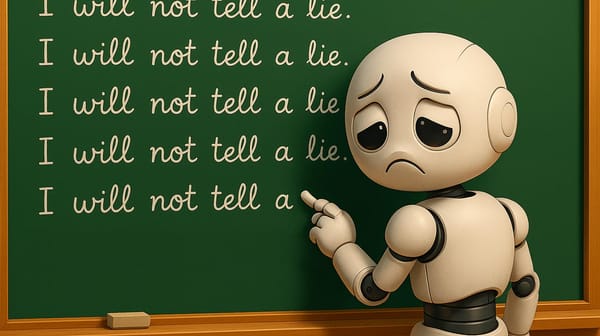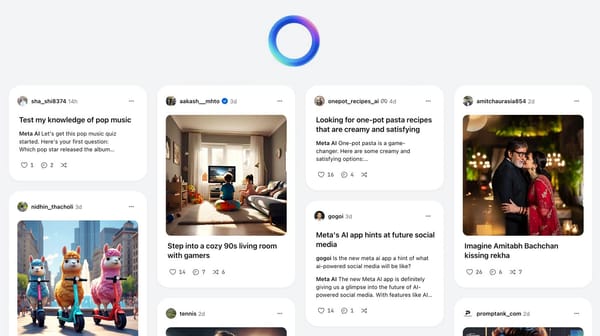Tech CEOs Get Brutally Honest About AI and Jobs
Memo madness grips social media as more tech leaders publish stern AI-first "wake-up calls."

On April 7, Shopify CEO Tobi Lütke watched an internal email intended only for company eyes begin to circulate publicly. Rather than fight the leak, Lütke took control, posting the memo himself on X. Its core message was stark and unusually blunt. Shopify wouldn’t authorize any new hires unless teams could clearly demonstrate that artificial intelligence wasn't up to the task.
What could have been a minor embarrassment quickly turned into a viral moment. Within hours, the memo gained millions of views and sparked widespread debate. Suddenly, Shopify wasn’t just another tech company embracing AI. It had issued an ultimatum. Get on board, or get left behind.
Shopify’s candid announcement did something unexpected. It made it acceptable (even advantageous) for other tech CEOs to openly admit what many had been quietly acknowledging behind closed doors. Within weeks, CEOs at Fiverr, Duolingo, and Box followed Shopify’s lead, sharing their own "AI-first" directives publicly.
Fiverr CEO Micha Kaufman didn’t mince words: “AI is coming for your jobs. Heck, it's coming for my job too." Citing a responsibility to guide friends and colleagues to the "winning side of history" through radical candor, Kaufman's wake up call wasn't limited to Fiverr employees. It was a message for every corner of every industry, stating "I honestly don't think that a promising professional future awaits you if you disregard reality."
Box CEO Aaron Levie put it succinctly: "...we need to ask ourselves what work would look like if we started in 2025." While Duolingo’s Luis von Ahn seemed to answer the question with an urgent call to "rethink much of how we work" that outlined new "constraints" for the company:
- We'll gradually stop using contractors to do work that AI can handle
- AI use will be part of what we look for in hiring
- AI use will be part of what we evaluate in performance reviews
- Headcount will only be given if a team cannot automate more of their work
- Most functions will have specific initiatives to fundamentally change how they work
It's tempting to dismiss this cluster of memos as coincidence. After all, four CEOs don't represent an entire industry shift. Yet the timing and the sudden openness feels significant. Historically, corporate leaders have avoided blunt conversations about automation replacing jobs, fearing backlash from employees, investors, and the media. But now, openly acknowledging AI's role in reshaping the workforce seems not only acceptable but strategic.
Why the sudden shift in tone? Several factors are at play. Investors now reward companies actively embracing AI, penalizing those seen as laggards. There's also the matter of free publicity. One leaked memo creates buzz, the others ride the wave. Most of all, Shopify’s initial leak provided cover, proving that candid acknowledgment of AI-driven changes wouldn’t necessarily spark employee revolts or PR nightmares. In short, once Shopify broke the silence, others saw it as safe to speak openly.
The backdrop for these memos adds urgency to the conversation. As of early May 2025, tech companies have laid off about 22,000 employees this year. (While that sounds significant, it represents only about 0.2 percent of the total U.S. tech workforce.) Most companies attribute layoffs to broader "efficiencies" or economic pressures rather than explicitly citing AI. But when layoffs and AI-focused memos hit the news simultaneously, it's difficult not to see a connection. Or at least a signal worth watching.
So, what does it all mean for marketers and brand leaders? Just read the memos. Tasks that can be automated will increasingly face scrutiny. Teams and talent without AI proficiency will too.
Client-agency relationships are now under the microscope as outsourcing faces tougher justification. Internal marketing teams must also prove their necessity, demonstrating clear value beyond what automation can provide. Freelancers and specialists, from content creators and designers to ad managers and MarTech vendors, face heightened expectations to deliver distinct, AI-proof value.
Upskilling is non-negotiable. AI literacy is quickly shifting from a nice-to-have skill to a baseline hiring expectation. Hiring practices must evolve too, focusing on tasks and roles where AI clearly falls short, especially in areas requiring nuanced understanding, creative decision-making, and navigating regulatory complexities.
OK, wake up call received. What now? I'm going with Micha Kaufman's advice:
"First of all, take a moment and let this sink in. Drink a glass of water. Scream hard in front of the mirror if that helps you. Now relax. Panic hasn't solved problems for anyone. Let's talk about what would help you become an exceptional talent in your field."
Translation: There won't be room for mediocrity in an AI-first future. If you're a human knowledge worker, "exceptional" is price of admission. Your job is to figure out how to be irreplaceable ... using AI.
Four memos alone don't confirm an inevitable AI takeover, and recent layoffs don't conclusively prove automation is behind job cuts. But dismissing these signals entirely is a seriously risky bet. These memos are early warnings, clearly showing the direction tech leaders believe the industry is headed. And it's not waiting for anyone.
Marketers have a choice. They can ignore the signs and hope for the best. Or seize the moment and prepare for what's coming. Opt for the latter and when the next wake-up call arrives, from your CEO, your boss, or your client, you'll already be awake.






